FITA Academy
Empowering students across various fields, we help you enhance your skills and provide unlimited placement support until you land your dream job. Ready to learn and make an impact?
Course Highlights and Why Full Stack Developer Course in Chennai at FITA Academy?
Upcoming Batches
- 03-07-2025
- Weekdays
- Thursday(Monday - Friday)
- 05-07-2025
- Weekend
- Saturday (Saturday - Sunday)
- 07-07-2025
- Weekdays
- Monday (Monday - Friday)
- 09-07-2025
- Weekdays
- Thursday(Monday - Friday)
Classroom Training
- Get trained by Industry Experts via Classroom Training at any of the FITA Academy branches near you
- Why Wait? Jump Start your Career by taking the Full Stack Developer Training in Chennai!
Instructor-Led Live Online Training
- Take-up Instructor-led Live Online Training. Get the Recorded Videos of each session.
- Travelling is a Constraint? Jump Start your Career by taking the Full Stack Developer Course Online!
Full Stack Developer Course Objectives
- Understanding the basics of Web Development, covering HTML, CSS, JavaScript.
- Obtaining knowledge of front end development and usage of Angular or React.
- Get to know back-end development and knowledge of Python/Node JS/PHP/Dot NET/Java.
- You can choose the one from our Full Stack Developer Course in Chennai as per your preference.
- Learn about Database Management using relational databases such as MySQL, MS-SQL or non-relational databases, also called noSQL databases such as MongoDB.
- Work on real-time projects such as developing a website, web application etc, to get a practical understanding of the above mentioned concepts.
Full Stack Developer Course Syllabus
Java Fullstack with Angular
Core Java Programming
- Introduction to Java
- Data Types
- Operators
- Variables
- Methods
- Object
- Constructors
- Strings
- Java Beans
- Arrays
- Inheritance
- Abstraction
- Abstraction using abstract classes
- Abstraction using interfaces
- Encapsulation
- Interfaces
- Polymorphism
- Exception Handling
- Collection Framework
- Generics
- Casting
- File Handling
- Serialization
- Threads
- Inner Classes
Java Enterprise Edition (JEE)
- Overview of J2EE and WWW
- The HTTP Protocol and Web Application Introduction
- Environment Setup
- HTML
- Servlets
- Java Server Pages (JSP)
- MVC Architecture
- JDBC
Spring and Spring Boot Framework
- Spring: Introduction
- Spring: Core Container
- Components of Spring Core
- Spring: Data Access and Integration
- Spring: Web Layer
- Spring: Aspect Oriented Programming (AOP)
- Spring: Security
- Spring: Boot
TypeScript Framework
- Introduction to TypeScript
- Advantages of TypeScript
- Overview of Node and Node Environment Setup
- Installing and Configuring TypeScript Engine
- Understanding Transpilation
TypeScript Variables and Data types
- Declaring and Defining Variables
- About “any”
- “var” Vs “let” keywords
- Static and Dynamic Type
- Data types : String, Number, Array, Object, Tuple, Enum, Void and NULL
OOPS in TypeScript
- Defining Class and Creating Objects
- Property, Methods and Constructors
- Handling Inheritance
- Types of Inheritance in TypeScript
- Understanding Access Modifiers
- Static Methods in TypeScript
- Understanding Interfaces in TypeScript
Programming with Angular
- Introducing Angular
- Angular – Environment Setup
- Angular Modules
- Angular Components
- Angular – Data and Event Bindings
- Angular Directives and Custom Directives
- Angular Pipes
- Angular Services and Dependency Injection
- Angular Routing and Advanced Routing
- Angular Template Driven Forms
- Angular Reactive Forms
- Angular Asynchronous Operations and Advanced HTTP
- Angular Authorizations
- Angular Animations
- Testing Angular Applications
- Angular Security and Internalization
- Angular Performance, Optimization and Deployment
- Real Time Project with Angular
Our Java Full Stack Developer Course Syllabus covers everything about the frameworks and databases to create dynamic web applications.
Python Fullstack Developer
Programming in Python
- Introduction to Python
- List, Ranges & Tuples in Python
- Python Dictionaries and Sets
- Input and Output in Python
- Python functions
- Python Object Oriented
- Python Exceptions Handling
- Python Regular Expressions
- Useful additions
Django Framework for Python
- Introduction
- Models layer
- View layer
- Template layer
- Forms
- Internationalization and localization
- Common web application tools
- Real-Time Projects
TypeScript Framework
- For detailed modules, refer Java Full Stack with Angular
Programming with Angular
- For detailed modules, refer Java Full Stack with Angular
Our Python Full Stack Developer Course Syllabus is designed to acquire industry relevant skills.
MEAN Stack Developer
MongoDB
- Introduction to MongoDB
- Installation and Configuration of MongoDB
- Fundamentals of MongoDB
- Working with Data - CRUD Operations
- Querying Collections
- Aggregation Operations
- Understanding Data Models and Schema
- Handling Transactions in MongoDB
- Handling Indexes in MongoDB
- Managing Security
- Replication
- Sharding in MongoDB
Node.js
Understanding the Web
- Architecture of a Web Application
- Server Side Scripting
- Client Side Scripting
- Importance of Performance
Introduction to Node.js
- What is Node.js
- Advantages of Node.js
- Installing Node.js and Configuring Node.js
- Architecture of Node.js
- Appreciating the Performance of Node.js
- Understanding Event Driven code execution and Asynchronous Events in Node.js
- Understanding Event Emitters
Implementing Node.js
- The Node lifecycle
- Creating and running a Node Server
- Handling Requests and Responses
- Routing and Redirecting Requests
- Handling Streams, buffers and Events
- Handling Multi-processing in Node.js
- Handling Run time Errors
Modules in Node.js
- Understanding Modules in Node.js
- Exploring various built-in Modules
- Third party Modules for Node.js
- Introduction to Node Package Manager - NPM
- Understanding Global and Local NPM Packages
- Installing and Updating a Module
- Deleting a Module
- Introduction to various NPM Modules
ExpressJS Framework
Introduction to ExpressJS Framework
- Why the need for Express Framework
- Overview of ExpressJS framework
- Installing ExpressJS
- Understanding Request and Response Objects
Exploring ExpressJS
- Configuring ExpressJS
- Understanding Middleware
- Understand How Middleware Works in ExpressJS
- Add a Middleware
- Creating Custom Middleware
- Handling Requests and Responses
- Handling Routing
- Using ExpressJS Router
- Path Filtering
- Creating and Serving HTML Pages
- Using Jade Templates
- Navigating Datasets
- Using REST in ExpressJS
- Handling POST
- Handling JSON data
- Handling Errors
TypeScript Framework
- For detailed modules, refer Java Full Stack with Angular
Programming with Angular
- For detailed modules, refer Java Full Stack with Angular
Fullstack Dot Net
- INTRODUCTION TO .NET FRAMEWORK 4.5
- VISUAL C#.NET
- ASP .NEt
- DO .NET CONCEPTS
- ASP.NET MVC (Model, View and Controller)
- MICROSOFT SQL SERVER
TypeScript Framework
- For detailed modules, refer Java Full Stack with Angular
Programming with Angular
- For detailed modules, refer Java Full Stack with Angular
PHP Fullstack Developer
Web Designing
- HTML
- Introducing HTML 5
- Introducing CSS and CSS 3
- Simplifying CSS with BootStrap
- Javascript
- Jquery Framework
Creating, Managing and Mastering MySQL
- MySQL Database
Developing Web Applications using PHP
- Introduction to PHP
- Basics of PHP
- Control Structures of PHP
- Functions in PHP
- User Defined Functions in PHP
- File Handling in PHP
- Handling Forms in PHP
- Accessing MySQL with PHP
- Sessions and Cookies
- Using Emails for Form Submission in PHP
Laravel Framework with PHP
- Laravel for PHP
- Installation and Architecture
- Laravel Component - Routes
- Laravel Component - Controllers
Full Stack Developer Course Trainer Profile
- The trainers at FITA Academy are experienced professionals who have expertise in different areas of Full Stack Development such as Frontend, Backend, Angular, React, etc.
- We have highly experienced Full Stack trainers dedicated to providing exceptional training to students at FITA Academy.
- Students at FITA Academy receive hands-on training from trainers in Client-side and Server-side programming.
- During Full Stack Development Training in Chennai, the instructors upskill you on the Web Development process by exposing them to industry-relevant frameworks such as MEAN Stack, MERN Stack etc.
- Trainers will help you become job ready by providing valuable insights about interview questions and conducting mock interviews.
Learn at FITA Academy & Get Your
Dream IT Job in 60 Days
like these Successful Students!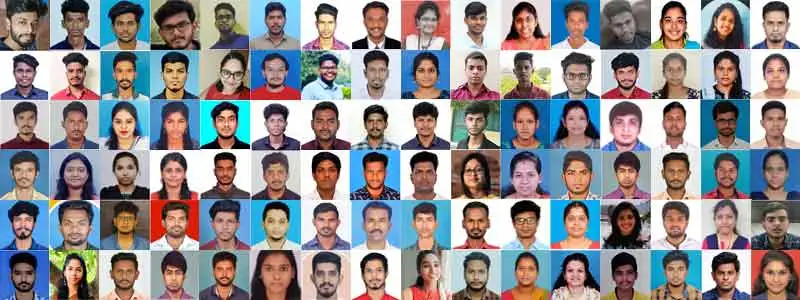
Student Success Story of Full Stack Developer Course in Chennai
Suganth, a fresher ECE graduate living in the suburbs of Ponneri in Chennai, was directionless. Therefore, having graduated from college in 2016, he was still working hard to decide what career to take. He comes from a regular middle class formed by his parents and an elder sister. He was desperate to gain some skills, get a job and provide for his family. He chose Full Stack Development considering his interests in coding and he was looking for the Full Stack Course in Chennai. That’s when he was referred to FITA Academy. He came and enquired about the Full stack course we offers.
Despite his passion and possessing some basic skills on coding, he was skeptical on whether he would master Full Stack Development. But our staff at FITA Academy gave him the confidence he needed by explaining in detail what and how we offer. We explained how he will be learning the course from us, the various methodologies we use, and the placement support and training we provide. He was encouraged and joined the Full Stack Development Course in Chennai; and that proved to be a game changer for him.
He joined the course and passionately learned whatever the trainers taught him. He rarely skipped classes, completed the assignments and projects on time and took up the placement training provided towards the end of the course.The student successfully completed the course and received a certificate of completion.
The job search wasn’t fruitful for Suganth initially. Having tried a few interviews during the course, he failed to get selected. Then, he attended the placement training conducted by FITA Academy. He was able to figure out the mistakes he made earlier as he attended our mock interviews and discussions of interview questions.
Things began to improve post placement training as he slowly started to taste success. Within the next 3 months, he got selected in 4 companies; Amazon, Congruent, Infosearch and Cognizant. He picked Amazon and is now working there with a 5.5 LPA package. FITA Academy has helped Suganth generate a successful career in Full Stack Development.
Key Features
FITA Academy empowers individuals with industry-relevant skills through expert-led training, transforming careers with hands-on experience.
Expert Trainers
Learn from industry professionals with hands-on experience.
Real-Time Projects
Gain practical exposure by working on live projects.

Certification
Get certified from FITA Academy and become job-ready.

Affordable Fees
High-quality courses available at a low budget.
Flexible Learning
Choose online/classroom, timings, and learning pace.

Placement Support
Access 3000+ companies for career opportunities.
Why Learn Full Stack Developer Course in Chennai at FITA Academy?
Live Capstone Projects
Real time Industry Experts as Trainers
Placement Support till you get your Dream Job offer!
Free Interview Clearing Workshops
Free Resume Preparation & Aptitude Workshops
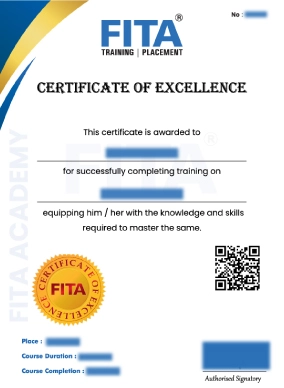
Full Stack Developer Certification Course in Chennai
The students who complete the Full Stack Developer Course in Chennai at FITA Academy will receive a certificate upon course completion. The certification will showcase your knowledge of the web development process. Including the certificate in your resume for the enhances your profile during the interview process. It will provide you with numerous career possibilities.
Gain in-depth knowledge and become a skilled Full Stack Developer through our Full Stack Certification Course in Chennai at FITA Academy. This program is designed to upskill you with the recent, in-demand skills required in today’s tech industry. You’ll master both front-end and back-end development, work with various databases, and learn essential deployment strategies. Our training includes hands-on project assignments, real-world case studies, and practical sessions to help you apply what you learn. With a focus on cutting-edge tools and core domain concepts, FITA Academy’s Full Stack Developer Training in Chennai prepares you to be industry-ready and confidently step into a successful tech career in today’s fast-paced digital world.
Advantages of Full Stack Certification at FITA Academy
Web development professionals who work across front-end and back-end interfaces are known as Full Stack Developers. To develop a successful career in full stack development you can consider enrolling at FITA Academy’s Full Stack Developer Course in Chennai. Obtaining this certification can give you entry to top companies.
Personalized Attention
Students can benefit from our individual mentorship and small classroom settings. Our trainers are industry veterans who offer industrial knowledge that surpasses theoretical knowledge. The classroom experience provides practical knowledge that allows students to transition their skills.
Comprehensive Training
The FITA Academy’s Full Stack Developer Course in Chennai presents students with thorough web development education beginning to end. The course gives students direct knowledge of front-end development tools and back-end programming tools like HTML, CSS, JavaScript, Angular, Node.js, and MongoDB. The extensive education provides developers with multiple abilities needed to excel within different aspects of web development practice. Students learn valuable problem-solving techniques through the course since these abilities help solve actual development problems in the real world.
Recognized Certification
Upon completing the course, we offer certifications to the students. Completing this course makes you strengthen your technical skills and adding the certificate in your resume lets you boost your chances to secure employment in a challenging job market.
Flexible Learning Options
The Full Stack Training in Chennai at FITA Academy provides learners with flexible programming benefits. Through offline classroom instruction combined with digital learning resources we cater to both working adults and new job seekers. With flexible learning options students can access the course material whenever suits their schedule from any place at their preferred learning speed. The flexible course enables all candidates to benefit from this training opportunity irrespective of their personal background.
Diverse Career Opportunities
Full Stack certification creates multiple potential career paths available for graduates. Acquiring skills from Full Stack certification can help you excel as either a web developer or software engineer while providing you the foundation to launch your own tech startup. The rising need for Full Stack Developers creates a valuable opportunity for you.
Strong Industry Connections
Pursuing Full Stack Course in Chennai at FITA Academy becomes advantageous because of its exceptional industry connections. Through our alliances with leading tech companies we simultaneously provides educational and employment integration opportunities for students. Through our professional network graduates can discover numerous career pathways after completing their education at FITA Academy. We help students find career positions through placement services, which identify job opportunities that fit their skills and goals.
Participating in Full Stack certification through FITA Academy represents an ideal financial choice for anyone trying to start a career in the technology field. The course delivers everything required for Full Stack Developer success through expert trainers who guide you through its well-rounded curriculum focused on essential practical skills.
Have Queries?
Talk to our Career Counselor for more Guidance on picking the right Career for you!
Placement Session & Job Opportunities
After completing Full Stack Developer Course in Chennai
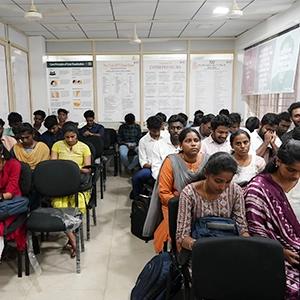
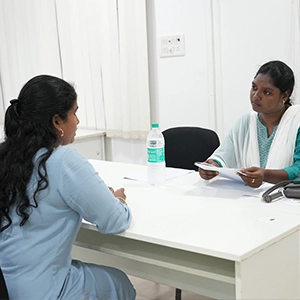

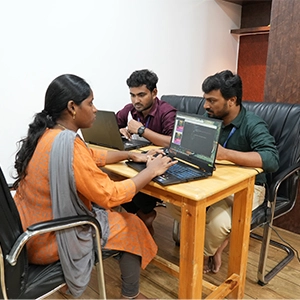
Technology is always progressing as we advance, and there will never be a halt. Due to these ongoing digital advancements, companies have increasingly had to concentrate on creating software solutions. This will allow them to meet the increasing demands of their clients. Therefore, Full Stack Developer was required in various industries among different companies. Out of necessity, many Start-up companies hire an experienced Full Stack Developer to design applications for themselves and others.
Full Stack developers are among the most desirable employees in the modern labour market, and their requests do not remain without attention for start-ups, medium businesses, and large multinational companies. Due to their abilities in designing user interfaces and implementing programming at the lower level, they are a critical resource for any company that wants to attain operational efficiency and deliver new value proposals. Full Stack developers play a huge role in development where they help to shorten the project development cycle, enhance efficiency and design ability, also build robust applications to enhance business growth and reach.
FITA Academy’s Full Stack Developer Course with Placement in Chennai equips students with in-depth knowledge and hands-on experience in industry-relevant tools and technologies. This all-encompassing course guarantees the learner is marketable and well-positioned to exploit great opportunities within this growing market.
“After completing the Full Stack Development Course in Chennai, students will receive 100% placement training.”
The Full Stack Developers include considerably more to the marketplace compensation rates than the other Developers and freelancers and get better career advancements and job security than freelancers functioning for leading full stack development firms. They also have the option of becoming freelance developers, either independently or concurrently with other roles. As full stack developers can build an entire application from start to finish, they have the potential to earn more.
Full Stack Developer Salary for Freshers ranges from Rs 3,75,000 to Rs 5,45,000. For Full Stack Developers the salary range with experience of 1-4 will be Rs 5,53,000 to Rs 7,50,000. The Full Stack Developers with 5-9 years of experience shall get up to Rs 8,20,000 to Rs 1,375,689 per annum. They also differ depending on the skills acquired, the number of years you have engraved and the organisation in which you operate.
By completing FITA Academy’s Full Stack Developer Course Chennai, you will be eligible for the following job titles:
- Front-End Developer
- Back-End Developer
- Web Developer
- Full Stack Developer
Front-End Developer
Front-end developers are the answer to the look and feel of websites, applications, and other relevant pages. They develop system interfaces that allow people to treat computers through images instead of words and phrases, dials and toggles rather than buttons and bars, and electronic notebooks instead of written ones. In addition to UI, front-end developers work with server and client languages such as PHP, ASP.NET, ColdFusion, JavaScript, CSS, etc.
Front end developer is one of the most popular jobs in today’s world of information technologies. Skilled front end developers have been on the rise, especially in recent years, because the requirement for HTML5, CSS3, jQuery AJAX, Angular and React technologies have also been on the rise. All these skill sets enable you to work on desktop and mobile platforms. This approach will help you to design a UI that responds to various user interface layouts and offers adaptability.
Since then, FITA Academy has established itself as the Full Stack Development Course in Chennai. The course will equip one with all the basic skills required in front-end developer, like NodeJS dealing with different technologies and developing web applications.
Back-End Developer
The work of a back-end developer entails the creation of software which communicates with databases as well as APIs. The work also links several programs to different database systems and API services. These are relational databases, Non-relational databases, RESTful web services, SOAP/XML web services, JSON web services, etc. Popular backend languages include Python Full Stack Developer Course in Chennai, Java, Node, PHP, etc.
To create websites and applications using the latest frameworks and tools, you will also have a vast understanding of the back-end systems that perform the business processing of your website or application. At the end of our Best Full Stack Developer Course in Chennai, you will emerge a master in Back-End Developing, which is always valuable in your resume.
Web Developer
Web Developers design and implement solutions for utilizing Information on the websites, applications, and services. Web Developer is a very specialized and versatile professional who is involved in creating, implementing, maintaining, and fixing various elements of Web Development. This involves writing program code to build real-time content like an HTML page, writing tools that make other developers develop their tools, and coming up with solutions that will conform to future technologies. The job requires the candidate to understand HTML, CSS, JavaScript, PHP, MySQL, etc.
Web developers also need to understand front-end and back-end development fully. FITA Academy’s Full Stack Developer Tutorial will help you develop web applications from design to development.
Full Stack Developer
A person trained to become a full stack developer can be responsible for the back-end and front-end of an application. A full stack developer will also be charged with designing an application’s user interface, Technological (Technological Implementation), and appearance by coding HTML and CSS. They are experienced in using HTML5, CSS3, JavaScript, jQuery, AngularJS, Node.js, Express.js, MongoDB, MySql, Redis, Docker, Git, Jenkins, AWS and Azure.
AWS covers everything you can imagine in the full-stack development process, including hosting, databases, APIs, security, and deployment. Due to flexibility, it supports the developers to implement, deploy, and manage Full Stack applications. AWS services’ knowledge increases application performance and scalability for the Full Stack developers.
Full Stack Developer Course in Chennai will enable you to understand the most important coding, designing, and front-end aspects of a full stack developer while being introduced to the back-end ability of a full stack developer. Besides, it will let you realise how to interact with various software frameworks.
Harish
I have completed a full stack developer course at FITA Academy. The entire training program was excellent. The mentor had good knowledge of both front and back-end coding. He has done an excellent job in covering the course modules and precisely cleared all my doubts. Now I got placed as a full stack developer in a reputed company. Thanks to FITA Academy and my trainer.
Veera
I am glad to share about my learning experience at FITA Academy. Recently I did the full stack developer course. The trainer was so friendly and was very good at interacting with all the students and ensured questions were answered. Now I am proficient in both front and back end technologies. I personally recommend FITA Academy to get the best learning experience.
Manish
I highly recommend FITA Academy for students to study the best full stack developer course. I was delighted upon taking this course. The trainer had good knowledge of full stack-related technologies.
I recently got placed as a full stack developer in a software company with a good salary package. Thanks to my trainer and FITA Academy for providing valuable training.
Our Students Work at
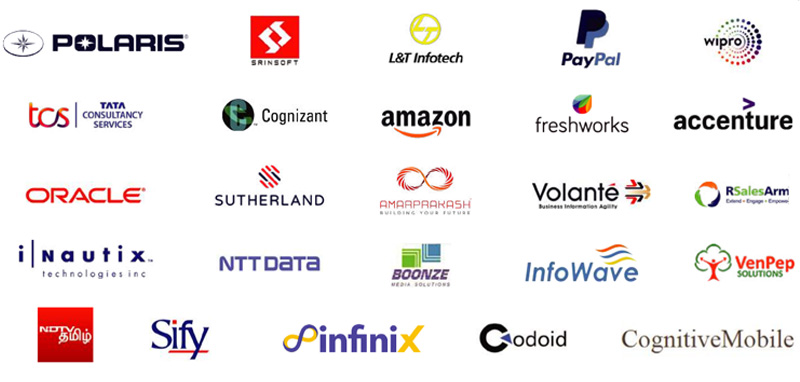
Frequently Asked Question (FAQ) about Full Stack Developer Course in Chennai
- The Full Stack Developer Course in Chennai at FITA Academy is designed by expert trainers with over 12 years of experience in Web Application Development, ensuring a strong foundation and practical insights for aspiring developers.
- FITA Academy prepares students with front, back, Database, and other professions required in the Web Development cycle.
- The Full Stack Developer Course in Chennai fees are budget friendly, especially for students and the working class.
- Perfect time for the batch for the students as well as for the working professionals also.
- Well-equipped Classrooms with unlimited lab usage for the students.
- Provide Interview Tips and corporate training.
- FITA Academy has placement tie up with more than 3,000 Small medium and large Industries, so the probability of placement with one of the mentioned industry is very high.
- For the students who would require the employers’ assistance, FITA Academy has its placement officer who will assist the student to secure the best employer through placement services.
- To attend the interview the Placement cell guides the students with several sessions on mock interviews and a detailed consultation of the Full Stack Developer Interview Questions and Answers.
- Since 2012 FITA Academy provide IT training by a team of IT specialists.
- We have trained up to 1,00,000 students, and many are in service.
- The Full Stack Training batch size is optimized for 5 - 6 members per batch. The batch size has been reduced to clear the doubts of the students in complex topics clearly with trainers.
- Our Full Stack Developer Course in Chennai for freshers is designed to provide practical training through numerous industry case studies, Corporate Training and real-time projects, ensuring you gain the skills required to succeed in the dynamic tech world.
Trainers have been Industry experts since 2012 in various domains such as frontend, backend, database management, MEAN Stack, web development, etc. They trained several students at FITA Academy, helping them to become successful professionals in Full Stack Development.
Yes, FITA Academy provides real-time project experience, that is the reason we are ranked the Top 10 Full Stack Developer Course in Chennai. Ensuring that you gain hands-on knowledge of Developing. This approach enhances your understanding of real-world applications.
As per the Web Development industry reports, it has been analyzed that today's web development industry has a 20% higher growth rate of Full Stack Developers. A full stack developer fresher is paid a median package of between INR 5,50,000 to INR 7,50,000 in India per annum.
Generally, a Full Stack developer needs a blend of both the front and backend skills, and they are:
- HTML, CSS and JavaScript
- Preferably knowledge of Angular or React.
- Profound understanding of programming languages like Python, Java, PHP, Dot NET, Node JS etc.
- A good understanding of Version control namely - Git.
- A better understanding of databases namely - SQL, Oracle, MongoDB, and MySQL.
- Familiarity over Security Concerns and its best practices.
- Basic knowledge of visual or web designs, and UI/UX.
The above mentioned skill set are taught at FITA Academy Chennai Full Stack Developer Course to make you industry ready.
Some of the most popular stacks that are actively used in the Web development industry are:
- MEAN Stack
- MERN Stack
- Java Full stack with Angular
- Java Full Stack with React
- Python Full stack with Angular
- Python Full Stack with React
- Dot Net Full stack with Angular
- Dot Net Full Stack with React
- PHP Full stack with Angular
- PHP Full Stack with React
General Q & A about Full Stack Developer Course in Chennai
What is the best institute for full stack development course in Chennai?
Is it possible to receive 20 LPA for a full-stack developer?
What is the Salary of a Full Stack Developer in Chennai?
Is Full Stack Development Good for Freshers?
Which Full Stack is Best?
- React.js
- Vue.js
- Angular
- Django (Python)
- Ruby on Rails
- Laravel (PHP)
- Express.js (Node.js)
- Spring Boot (Java)
What is the cost of a full stack education?
How long will it take to learn full-stack?
Is full stack developer going to be relevant in the future?
Is it difficult to find a full stack developer position?
Do big companies have full stack developer?
Which AWS cloud certification is best for a full stack (MERN) developer?
Why full-stack is demand?
Can I learn full-stack in 3 months?
What is a full stack course?
Is full-stack a good career option?
What is the salary of a full stack developer in wipro?
What is the minimum salary of full-stack in India?
What is the syllabus for full-stack developer?
What is front-end backend?
Which language is best for full stack developers?
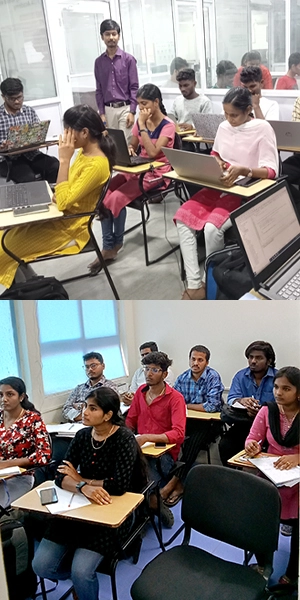
Related Blogs
- Why Web Developers choose AngularJS?
- Real-World Examples of Python in Web Development
- Benefits of a Unique Web Design
- Essential Tools for Modern Software Development
- Mastering CSS: Tips, Tricks, and Techniques
- Highest Paying Web development skills
- Scope of Python – In-Demand Career Prospects of Python


